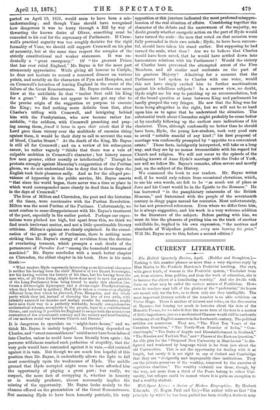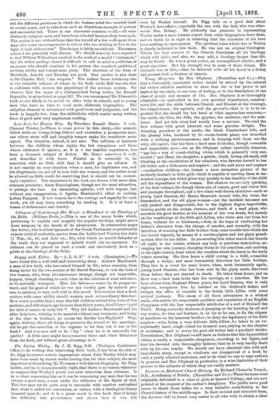out the different provinces in which the human mind has
exerted itself in recent years, and to take from each an illustrious example of patient and successful toil. There is one character common to all,— all were distinctly religious men, and have been selected because they were such. The author is not without hope that the record of a few well-spent lives may offer some encouragement to others who are striving to live in the light of high endeavours." The design is fairly carried out. The names selected are generally well chosen. We should scarcely have expected to find William Wilberforce exalted to the rank of a model "statesman," but the writer perhaps found it difficult to call to mind a politician of eminence who should combine in his person the required qualities of striking ability and conspicuous piety. The sketches of the lives of Havelock, Arnold, and Faraday are good. Due justice is also done to Sir Charles Bell, "the surgeon." The author bears testimony also to the valuable labours of others in the field, while Bell was the first to cultivate with success the physiology of the nervous system. We observe that the name of a distinguished living writer, Dr. Russell Reynolds, is misprinted on page 317. We can recommend Mr. Edmonds's book as one likely to he useful to elder boys in schools, and to young men who have no time to read more elaborate biographies. The religions element is introduced with good-taste and judgment, and the book is happily free from the shibboleths which render many written lives of good men very unpleasant reading.



































 Previous page
Previous page